Best CRM for startups of 2024

The best CRM for startups makes it simple and easy for your new business to manage contacts, communications, and customer relationships.
Best CRM for startups: quick menu
The CRM software industry has grown rapidly over the past few years, and every new solution to hit the market has brought its own set of unique features to the table. But for cash-strapped startups, the two most important factors are affordability and scalability. Migrating from one CRM to another later down the line can be tough, so it’s important to choose a solution that you won’t outgrow right from the start. It should be able to scale up alongside your business.
All the CRM solutions below are cost-effective and highly scalable. Read on and we’ll tell you everything that you need to know about them. By the end of this guide, you’ll have all the information you need to make an informed decision.
You can also learn why your business needs a CRM, or watch our short video below.
We’ve also listed the best project management software.
The best CRM for startups of 2024 in full:
Why you can trust TechRadar
We spend hours testing every product or service we review, so you can be sure you’re buying the best. Find out more about how we test.
Best overall
Salesforce is the world’s most popular CRM solution and has earned a reputation for being one of the best.
As it’s so widely adopted, it’s the software that salespeople typically have the most experience with, which will make onboarding easier as your business grows and you hire more reps. However, the full version of Salesforce can be a little pricey.
Fortunately, there’s a more affordable alternative for startup teams working on a shoestring budget—Salesforce Essentials. It’s a more limited version of the software with fewer bells and whistles, but it can be a solid choice for startups that expect to upgrade to the full version of Salesforce as their business grows.
Salesforce Essentials can help you to organize your customer data, track sales, and support your customers from one centralized dashboard. You can also integrate it with other tools in your stack like ActiveCampaign, Zapier, and Docusign.
Read our full Salesforce review.
Best free
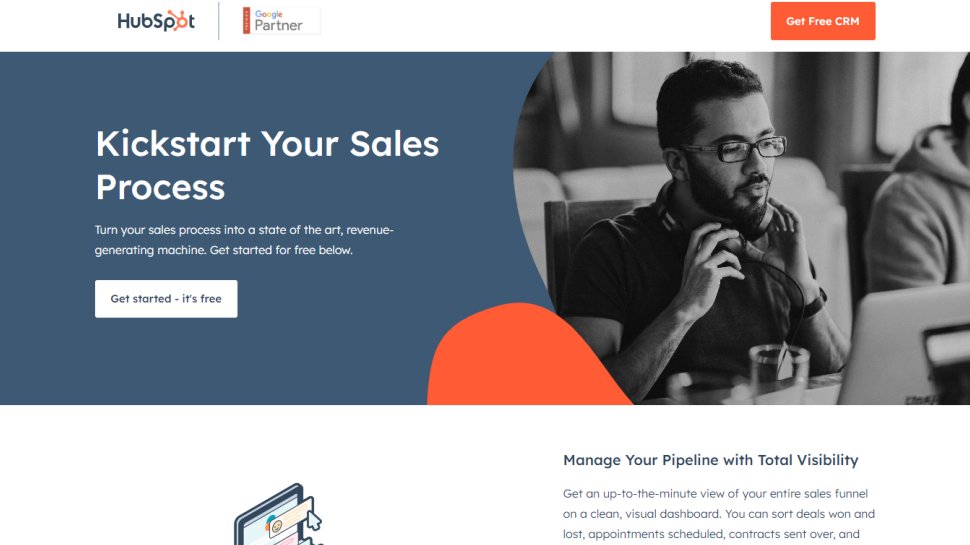
The HubSpot CRM is a suite of individual tools, each built to help you manage different areas of your business, from marketing and sales to customer service and operations. Flexible pricing plans allow you to purchase these tools individually or stack them together for an all-in-one CRM solution.
There are a few reasons we think HubSpot is one of the best CRMs for startups. Firstly, there’s the HubSpot for Startups program, which provides startup-friendly onboarding and tailored training, plus hefty discounts of up to 90% for eligible ventures in the first year. This can help keep costs low so you have more of your budget left over to spend on growing your business.
Secondly, there’s the free plan. You can get access to a “lite” version of all of Hubspot’s marketing, sales, operational, and customer service tools without spending a penny.
The free plan includes features like a shared inbox, contact management, live chat, email marketing tools, dashboard reporting, deal tracking, onscreen calling, and more. And when you’re ready for more, you can purchase paid add-on packages to unlock more sophisticated features that you may need as your business grows.
And lastly, there’s the HubSpot Academy, which provides unlimited free access to training materials to help you to get the most out of your CRM and bring your team up to speed. For startups, this kind of guidance and support is really useful.
Read our full HubSpot review.
Best customization
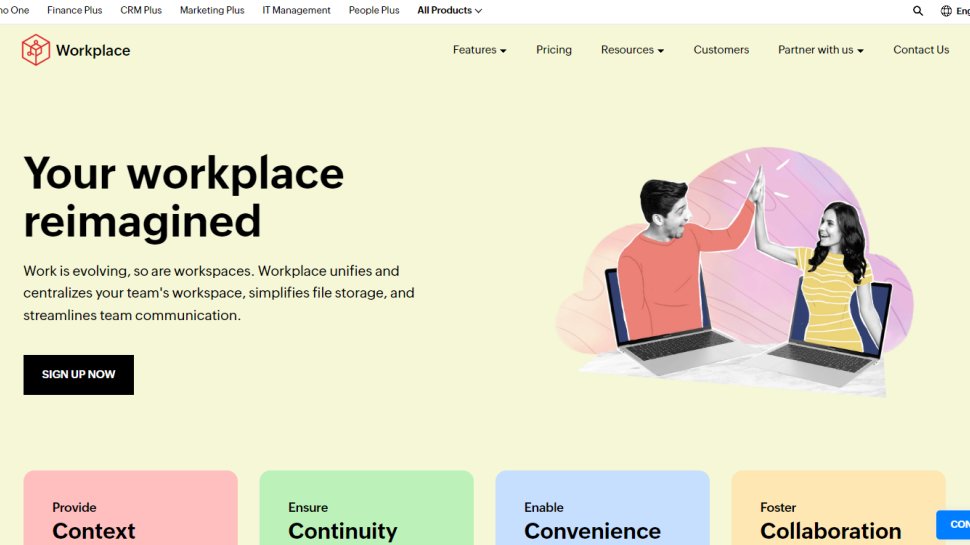
Zoho is another powerful, full-featured CRM. It provides everything you’d expect from a customer relationship management platform, including contact and pipeline management, lead generation tools, robust reporting and analytics, workflow automation, and more.
The unified inbox allows you to read, manage, and respond to customer messages across all your communication channels in one place, including telephone, email, live chat, and social platforms.
One of Zoho’s biggest strengths is the Canvas design studio. This cutting-edge feature allows Zoho users to design their own CRM interface based on their own preferences and requirements using an intuitive drag-and-drop editor.
And of course, Zoho CRM also integrates seamlessly with all the other tools in Zoho’s cloud software suite, so it’s the natural choice for existing Zoho users.
There’s even a free plan available, which is good news for super-lean startups. It has limited features but supports up to three users.
Read our full Zoho CRM review.
Best for tools
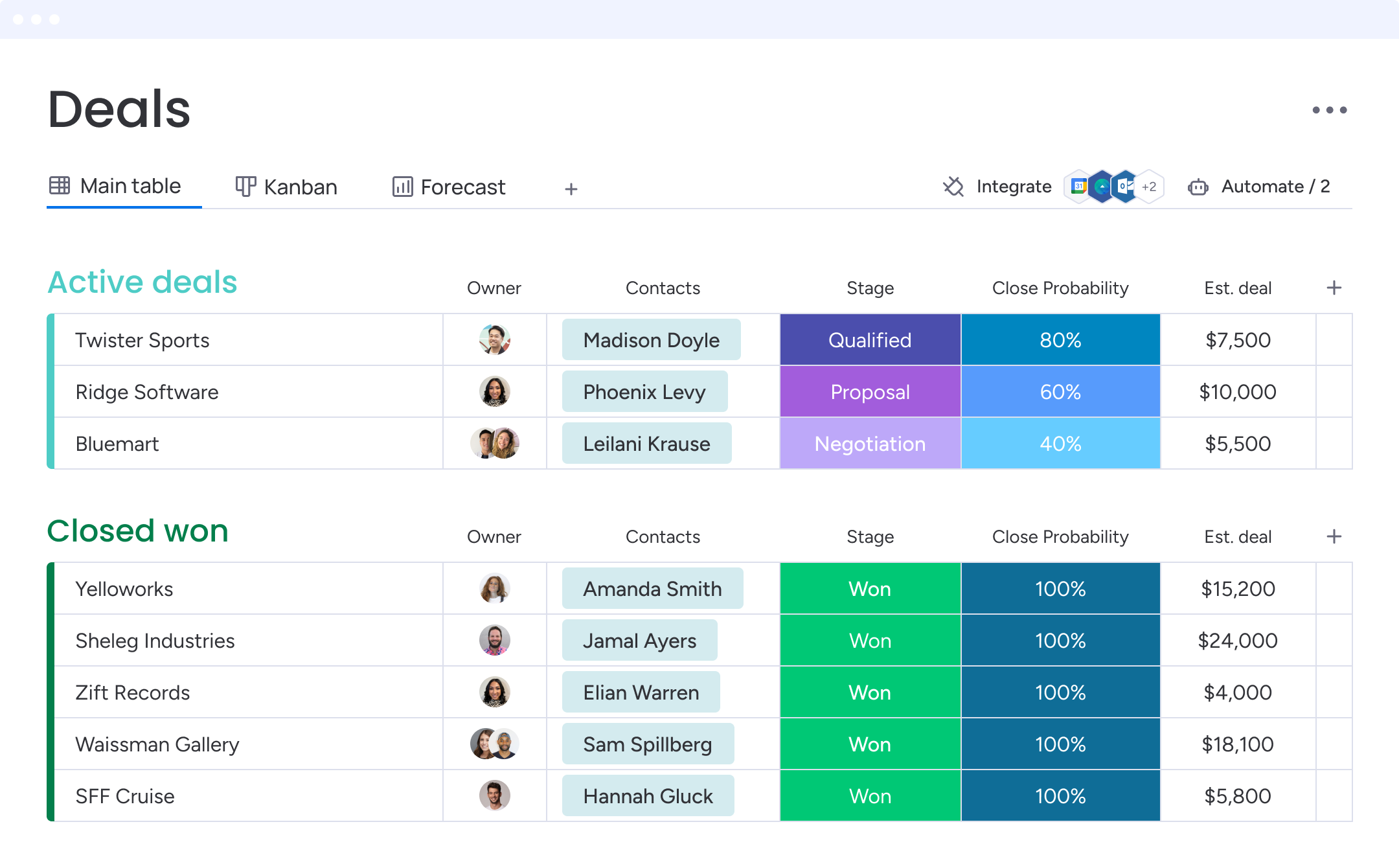
Monday.com is a project management system designed to give you a flexible and transparent way to organize your work. With a highly visual scheduling interface and customizable workflows, Monday.com adapts to the unique way members of your team approach their projects.
There are four different levels of Monday.com membership: Basic, Standard, Pro, and Enterprise. Prices vary depending on the number of user accounts you require, with the cheapest memberships only allowing you to add two users and top-end options supporting more than 200 accounts.
Monday.com is the ideal project management tool for anyone looking for an accessible system that their team will actually use. Unfortunately, some important features, like calendar views, are only available with its more expensive subscriptions. All the same, Monday.com stands out for its slick design and adaptable third-party integrations.
Read our full Monday.com review.
Best for project management
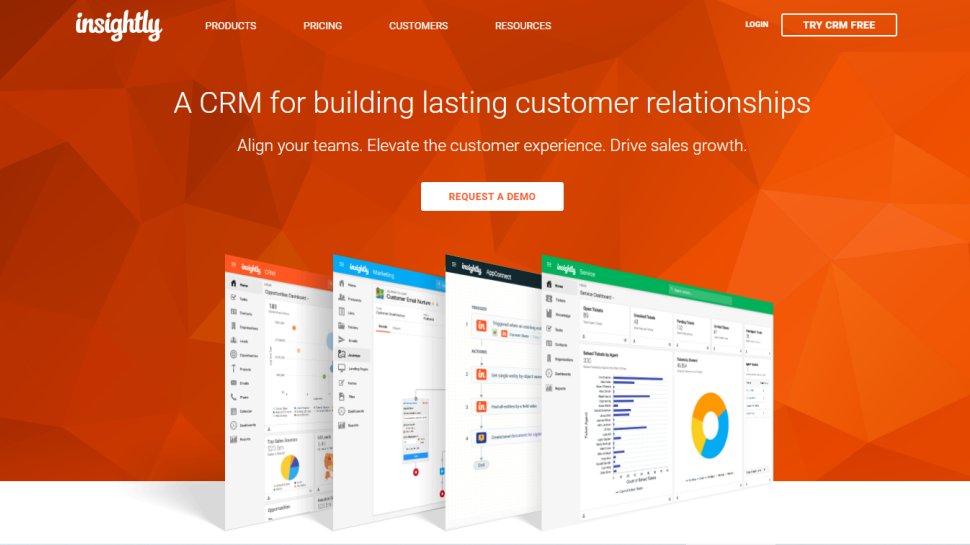
Insightly is a versatile CRM that’s great for startups who are looking for project management tools in their CRM. You can manage projects better with milestone/task tracking and calendar syncing.
It also comes with powerful workflow management features that can help you to streamline your operations and save time.
For example, lead routing automatically assigns your leads to the right sales rep, so you can follow up with prospects quickly (while they’re still interested) and close more deals. Meanwhile, powerful automations allow you to set up complex processes to automate repetitive tasks like sending emails and updating records.
You can also use the built-in email marketing features to send, create, and track emails from within Insightly. It will even let you know what kind of open and click-through rates your emails are generating. Custom business reports help you to keep track of all the other mission-critical metrics that are most important to your startup.
Because there’s so much you can do with Insightly, it does have a steeper learning curve than some other CRMs.
Read our full Insightly review.
Best for ease-of-use
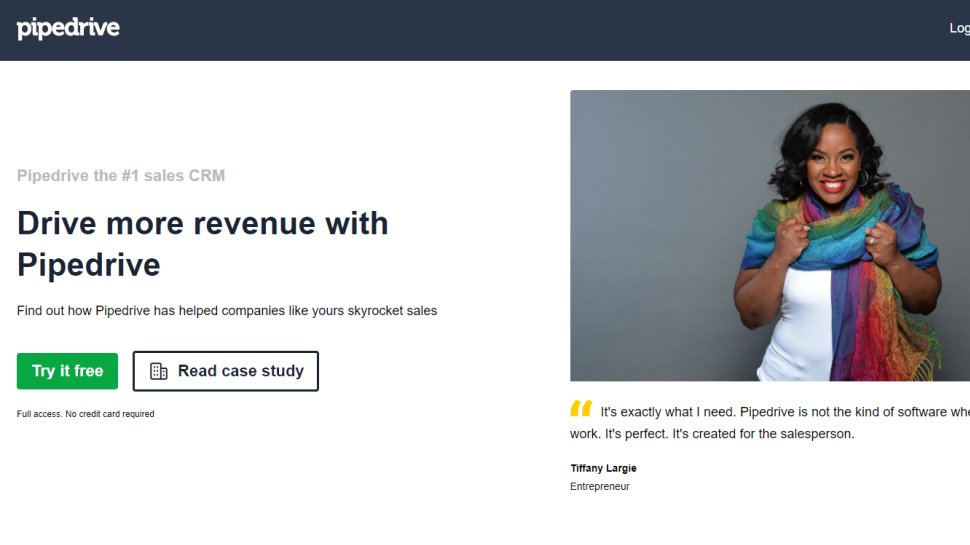
Pipedrive is a newcomer to the CRM space and was built with startups in mind. It’s designed to be everything growing businesses want: flexible, affordable, results-oriented, and easy to use.
The heart and soul of Pipedrive is the sales pipeline. The founders of the CRM realized that this is the most important feature for startups, not just for sales and contact management, but also for solving other problems that new businesses face.
In the Pipeline View, a clear visual interface lets you track deals and see what stage of your pipeline they occupy. Your team can use this feature to understand your sales momentum and priorities.
You can customize your pipeline to fit your startup’s unique sales process and add your own sales stages, activities, and team members.
Pipedrive is one of the most simple and intuitive CRM solutions on the market, which makes it ideal for startups that want to get moving quickly.
Read our full Pipedrive review.
CRMs for startups FAQs
What are the best CRMs startups?
Every startup is different. The best CRM solution for your company will depend on factors like the size of your business, what your goals are, and your budget.
HubSpot is our overall top pick thanks to its generous free plan, extensive suite of tools, and startup-exclusive discounts. Zoho’s another great option—particularly if you’re already using other Zoho tools or want to build your own customized CRM interface.
Insightly leads the way when it comes to project management, with a ton of advanced tools for workflow automation. Or, if you’d prefer to keep things simple, Pipedrive is very easy to use and implement.
And if you want to follow the crowd, you can always go with Salesforce Essentials—a cost-effective, pared-down version of the world’s most popular CRM.
How to choose the best CRM solution for you
In order to find the best CRM solution for you, start by considering your needs. Are there only specific features you’re looking for, or would you prefer an all-in-one solution?
For example, if you’re just looking for sales features like leads and pipelines, automated outreach, and call tracking, it might be worth choosing a flexible CRM solution like HubSpot and just paying for the Sales Hub add-on.
If you want a cost-effective, end-to-end solution with a broader feature set, you can’t go wrong with Salesforce Essentials.
Next, consider what your priorities are. If ease of use is the most important factor for you, and you don’t want to have to spend weeks onboarding new users whenever you hire a sales rep, we’d recommend Pipedrive.
If you’re happy spending a little more time getting things set up and you want to take advantage of more advanced features, Zoho CRM lets you design your own interface, customized to your specific preferences.
And of course, don’t forget to think about the price. For cash-strapped startups, it can be tempting to choose the cheapest option—but this isn’t always the best idea. The golden rule is to choose a CRM that can keep pace with the growth of your business.
Some platforms will charge more based on the number of contacts in your database, or for extra users, so you can start small and scale up when you’re ready.
How we tested CRM solutions for startups
We look at various factors in order to test CRM software. When putting together this list, we looked at what features each tool included (e.g. lead management, workflow automation, unified inboxes, call tracking) and how well they met the needs of a typical startup.
We also looked at how many third-party integrations each CRM supported and how easy they were to use. We based this on our own experiences with each platform as well as what other users had to say about them.
In addition to the above, we also considered factors like customer support, documentation, and customization options.
And of course, we also had to factor in price. We looked at the different pricing structures of each CRM and evaluated them based on how affordable and scalable they were. The goal was to pick out the tools that offered the best value for money for growing businesses.
Read how we test, rate, and review products on TechRadar.
Next steps
Working with a tight budget? Check out these free CRM solutions. Learn more about how a CRM solution can improve your customer relationships. Or, for more ideas, check out our roundup of the best CRM for small businesses.
Get in touch
- You’ve reached the end of the page. Jump back up to the top ^



